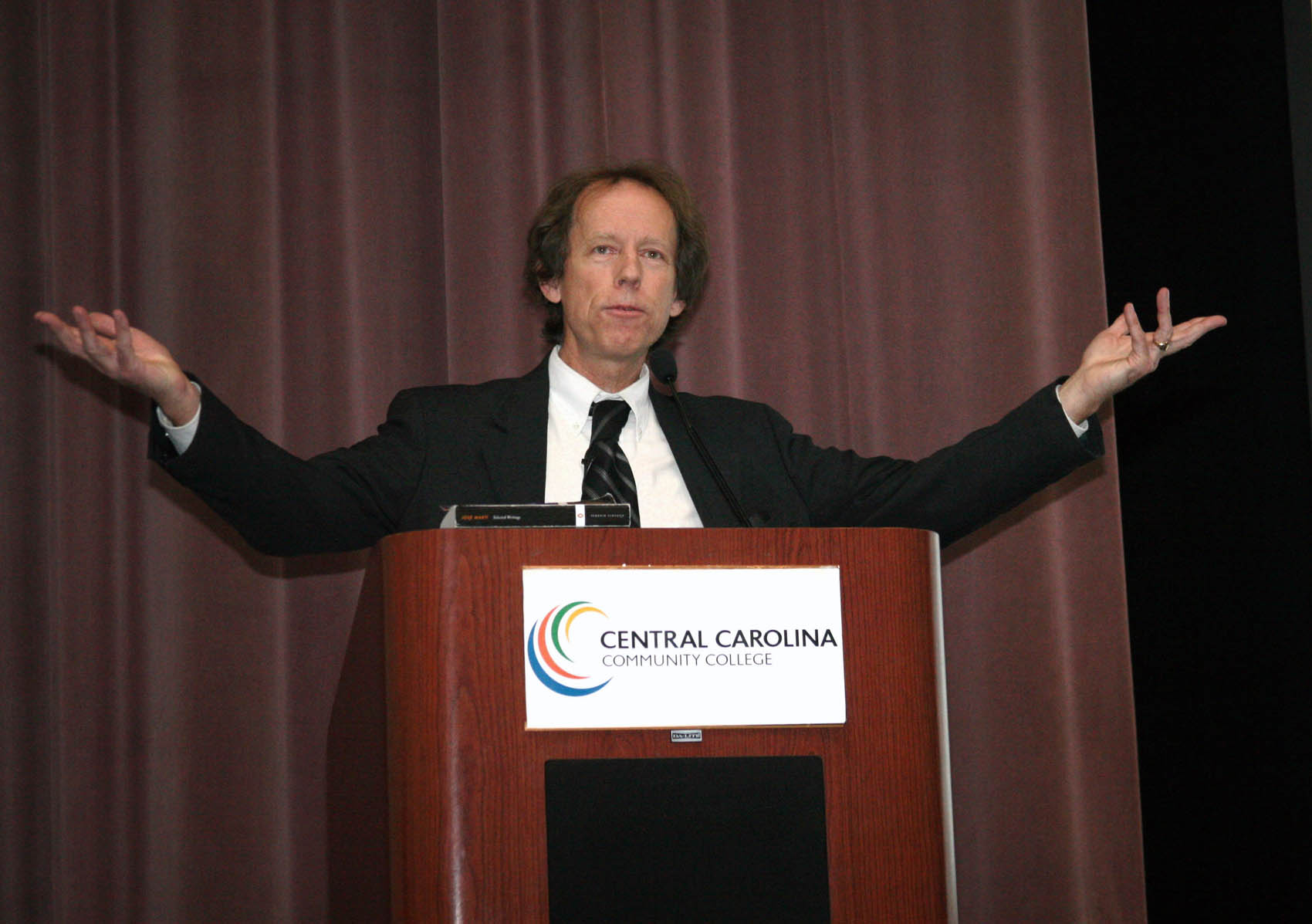
Dr. Paul Haspel, an English instructor at Central Carolina Community College, shared his impressions in "The Forbidden Island: Americans in Cuba," a presentation to university transfer students on March 15 at the Dennis A. Wicker Civic Center.

SANFORD - Until travel restrictions were eased beginning several years ago, few Americans set foot in Cuba, even though the island nation rests just 90 miles off the Florida coast. Now, as travel slowly resumes for the first time in more than five decades, more are exploring a culture still largely locked in the past.
One of them is Dr. Paul Haspel, an English instructor at Central Carolina Community College, who shared his impressions in "The Forbidden Island: Americans in Cuba," a presentation to university transfer students on March 15 at the Dennis A. Wicker Civic Center.
"Cuba is a dazzling gem in the Caribbean crown," Haspel began. "It is truly a beautiful country and one of my first impressions was the sheer beauty of the island. It is a glorious country."
What followed was a broad and candid look at the good and the bad, the history and present, which defines Cuba today -- even with recommendations for a few Hollywood films that have tried to capture elements of the Cuban experience.
Haspel didn't know what to expect before the trip. What he found was an island full of apparent contradictions. Old American cars. Deteriorating buildings. Luxury resorts for medical tourism. Propaganda posters featuring Marxist revolutionary Che Guevara. And a vibrant Havana nightlife scene centered around music and bars.
He also found warm people everywhere -- something that made a lasting impression. "The Cuban people are wonderful," Haspel said. "The word 'wonderful' should be in all caps, boldface, italics, underlined. The Cuban people are delightful."
Despite ongoing political tensions between the two countries, Haspel said Cubans divorce their opinions on governmental policy from their perception of American citizens. They are very curious about American life and have a positive impression of American people.
"They want to see a closer relationship between Cuba and the United States of America," he said. "They also seem to want to see their country move forward under younger and more modern leadership."
American tourism was curtailed in 1963 following the Cuban Missile Crisis, and for decades Cuba remained largely off limits. Travel restrictions were eased six years ago, when federal officials began allowing students and religious missionaries to visit under certain circumstances, and further in October, when the government issued new regulations. Still, travel strictly for tourism remains prohibited.
Haspel made his trip last fall to participate in Docencia 2016, an international education conference in Havana.
The end of Haspel's 40-minute presentation to CCCC students was the beginning of a fast-paced question-and-answer session, with students firing about two dozen questions that filled out the hour. It started with Haspel's impressions of Cuban cuisine (you can't miss the seafood) and then moved on to other issues.
What are his thoughts on the Cuban educational system? (Not bad, but much better for the elites.) What do Cubans want to know about Americans? (How affluent life is for average people and whether they really can criticize government officials in public.) Did he have any brush with Fidel Castro? (Only when he was moved off the seaside highway to make way for a presidential motorcade.)
Luis Gonzalez, a CCCC student with interests in business and the humanities, said he was impressed that Haspel was one of the first Americans to visit contemporary Cuba and that the instructor managed to condense so much Cuban history and culture into one interesting hour.
Most of all, Gonzalez was surprised by how oppressive the Cuban government remains, even though the country is beginning to change. "It's still a tough situation to see from an outside perspective," Gonzalez said. "The most surprising thing was to see how people are still scared to talk about the government, especially when we live in a place where you can criticize anybody."
"The Forbidden Island" was part of an ongoing series connecting university transfer students with notable scholars and artists. Among the recent speakers were Pulitzer Prize winning photographer Jose Galvez, discussing his work documenting Latino life in the United States, and archaeologist and author Char Solomon on her study of the Maya civilization.
The series continues in April with Dr. Debbie Long, the daughter of two Holocaust survivors who later spent years as refugees, providing CCCC's Fourth Annual Holocaust Remembrance presentation.

Dr. Paul Haspel, an English instructor at Central Carolina Community College, shared his impressions in "The Forbidden Island: Americans in Cuba," a presentation to university transfer students on March 15 at the Dennis A. Wicker Civic Center.